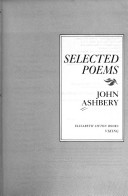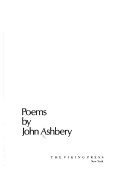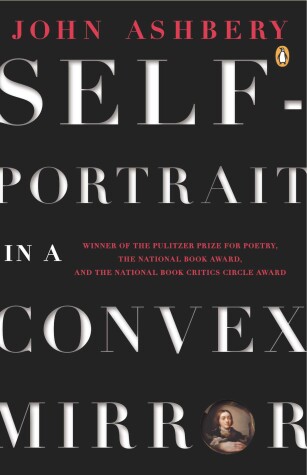The Penguin poets
3 total works
Selections from the first three decades of the poetry of John Ashbery, author of Self-Portrait in a Convex Mirror, winner of the Pulitzer Prize and the National Book Award
The late John Ashbery was a poet whose “teasing, delicate, soulful lines made him one of the most influential...Read more
The late John Ashbery was a poet whose “teasing, delicate, soulful lines made him one of the most influential...Read more
Selections from the first three decades of the poetry of John Ashbery, author of Self-Portrait in a Convex Mirror, winner of the Pulitzer Prize and the National Book Award
The late John Ashbery was a poet whose “teasing, delicate, soulful lines made him one of the most influential figures of late-20th and early 21st century American literature.” (The New York Times) This important volume gathers work from his first ten collections of poetry, from Some Trees, which was chosen by W.H. Auden for the Yale Younger Poets Series (1956), to A Wave (1984). The 138 poems in this volume include short lyrics, haikus, prose poems, and many of Ashbery’s major long poems, including “Self-Portrait in a Convex Mirror,” offering a beautiful distillation of the first thirty years of his remarkable, groundbreaking work.
The late John Ashbery was a poet whose “teasing, delicate, soulful lines made him one of the most influential figures of late-20th and early 21st century American literature.” (The New York Times) This important volume gathers work from his first ten collections of poetry, from Some Trees, which was chosen by W.H. Auden for the Yale Younger Poets Series (1956), to A Wave (1984). The 138 poems in this volume include short lyrics, haikus, prose poems, and many of Ashbery’s major long poems, including “Self-Portrait in a Convex Mirror,” offering a beautiful distillation of the first thirty years of his remarkable, groundbreaking work.
'Self Portrait in a Convex Mirror'was the first of John Ashbery's books to be published in Britain by Carcanet, and this is its third printing. Since it originally appeared here in 1977, three further collections have followed: 'As We Know', 'Shadow Train' and 'A Wave'. 'Self Portrait in a...Read more
'Self Portrait in a Convex Mirror'was the first of John Ashbery's books to be published in Britain by Carcanet, and this is its third printing. Since it originally appeared here in 1977, three further collections have followed: 'As We Know', 'Shadow Train' and 'A Wave'. 'Self Portrait in a Convex Mirror'was awarded the Pulitzer Prize, a National Book Award and the National Book Critics' Circle Award. The long title poem, a meditation on Parmigianino's famous self-portrait, has become Ashbery's best-known poem. It is accompanied here by a number of shorter pieces - playful, witty, elusive.
John Ashbery’s most renowned collection of poetry -- Winner of The Pulitzer Prize, the National Book Award, and the National Book Critics Circle Award
First released in 1975, Self-Portrait in a Convex Mirror is today regarded as one of the most important collections of poetry published in the...Read more
First released in 1975, Self-Portrait in a Convex Mirror is today regarded as one of the most important collections of poetry published in the...Read more
John Ashbery’s most renowned collection of poetry -- Winner of The Pulitzer Prize, the National Book Award, and the National Book Critics Circle Award
First released in 1975, Self-Portrait in a Convex Mirror is today regarded as one of the most important collections of poetry published in the last fifty years. Not only in the title poem, which the critic John Russell called “one of the finest long poems of our period,” but throughout the entire volume, Ashbery reaffirms the poetic power that made him an outstanding figure in contemporary literature. These are poems “of breathtaking freshness and adventure in which dazzling orchestrations of language open up whole areas of consciousness no other American poet as ever begun to explore” (The New York Times).
First released in 1975, Self-Portrait in a Convex Mirror is today regarded as one of the most important collections of poetry published in the last fifty years. Not only in the title poem, which the critic John Russell called “one of the finest long poems of our period,” but throughout the entire volume, Ashbery reaffirms the poetic power that made him an outstanding figure in contemporary literature. These are poems “of breathtaking freshness and adventure in which dazzling orchestrations of language open up whole areas of consciousness no other American poet as ever begun to explore” (The New York Times).


